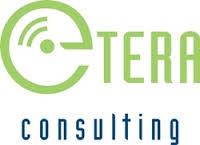In its new format, “Weekend E-Discovery/Tech Diversions” will focus on one story: an interesting e-discovery event, or technology event, or legal issue (or a mix of the three).
eTERA Consulting is the sponsor of “Weekend E-Discovery/Tech Diversions”.
While eTERA Consulting provides services across the entire Electronic Discovery Reference Model, it is well known for its Opt1mum One managed services eDiscovery program. Opt1mum One offers customizable solutions that delivers 12 key business objectives including budget predictability, cost savings, data access and control, and security. For more about eTERA see the end of this post.
Google, the EU anti-competition investigation, and monopoly: a few thoughts
27 September 2014 – The European Commission’s antitrust investigation of Google is a test of the continent’s ability to reverse the invisible conquest of its sovereignty. The Commission, as all pundits will tell you, has the most unimaginative of technology policies. So Google-bashing is a substitute.
But travel in and around Europe and chat with corporate chieftains and technology mavens and you will see laid bare the gulf emerging between some of Europe’s policy makers and the prevailing view in the US, not least with the Silicon Valley entrepreneurs who see an unfettered web as a tool for spreading liberty … oh, and profit. Taxi drivers have protested against Uber (the US ride-sharing service) from London to Milan, but it is in Germany that a militant taxi industry has won a countrywide injunction against the company. A senior German politician has called for a break-up of Google, fearing the company has abused its dominance of search. And German media groups are pressing politicians in Brussels to take a harder line on Google and other US internet groups.
Last year, at a joint press conference with Obama, Merkel she caused a stir by referring to the internet as“Neuland” – uncharted territory – and suggested it was a potential threat to liberty. “The internet is uncharted territory for us all,” she declared. “And it makes it possible for enemies and opponents of our democratic order to endanger our way of life with entirely new means and entirely new approaches.”
Earlier this year .. in a surprise move … the European Commission reopened its four-year antitrust investigation into Google’s search and advertising business, and could open a separate one into its Android mobile operating system. Joaquin Almunia, the EC’s current but-soon-to-be-replaced antitrust chief said that following “very, very negative” responses from complainants to the proposed settlement unveiled in the spring that he is “trying to extract from Google solutions to these solid arguments.” He said that “in some of those replies, some complainants have introduced new arguments, new data, new considerations so we now need to analyse this and to see if we can find solutions – if Google can find solutions to some of these concerns which we consider justified, and we are in this process. So it’s a long investigation, it’s a complex issue.”
The long-running investigation formally began in November 2010, when Almunia opened an investigation into whether Google’s dominance in Europe’s search advertising market, where it accounts for roughly 95% of the search market, required regulatory action.
At the center of the Commission complaint? The “extended search” features that save us a few clicks and cut out a few middlemen. Search for “weather”, and Google will now show the forecast itself instead of sending us off to another site. Google says it is being helpful. Who could disagree?
“Ah, but hold on” say the critics. The search engine is going further. To truly anticipate our needs, the company wants to know our habits, schedules, social circles. So it is planting sensors wherever they might pick up the faintest trace of our aura. First they popped up in our In boxes, which Google continuously scans in order to sell advertising. Next it was our smartphones, glasses and thermostats. Soon it will be our cars. The ultimate step would be to abolish the search box altogether, and try to satisfy our information needs before we have even expressed them. Google’s Eric Schmidt once described this approach as a “serendipity engine”, arguing that this is the future of search.
For those of you who use Google Now … Google’s flagship virtual assistant which is available on smartphones and in the Chrome browser … Google is already there. Google Now draws on all the information at Google’s disposal. It provides traffic information, reminds users of upcoming travel reservations, announces trendy restaurants nearby, shows film listings at local cinemas, and much else. Such insights are possible because Google studies our search habits, tracks our emails, and understands our location. The company argues that, far from occupying a dominant position, it is a sitting duck for any start-up that comes up with a better algorithm. But in truth, it is Google’s vast repository of data that sets it apart – and here it has such a big head start that no competitor is likely to catch up.
And yet the Commission has yet to put its finger on it. Says Evgeny Morozov: “Europe has come under the spell of American neoliberalism, with its unashamed celebration of monopolies in the name of consumer welfare and market efficiency. It is time to recover the almost-forgotten language of politics, and treat users as citizens first and consumers second”.
On the U.S. side, its a done deal. U.S. citizens today are not citizens. They are mere subjects of the commercial realm. By coupling advertising with the pre-emptive possibilities of its serendipity engine, Google has turned citizens into automata, who entertain an illusion of free will while living in a world of options, nudges and suggestions that have all been generated by autonomous algorithms optimized for profit alone.
If you recall … and I have been watching this case since 2010 … the thought was Europe would support digital platforms that are decentralized and advertising-free, that provide privacy and security by design, and that treat data as a way to promote public good. All the tech is there to do it.
But as it bore out, because of its reliance on Silicon Valley, Europe has been left behind – politically, technologically and economically … so the Commission is faced with an existential challenge. And it is beyond its capability to address. So punching Google is more fun.
At a technology anti-trust workshop in Amsterdam last week one participant told me:
“quite honestly. the whole Snowden/NSA surveillance story finally brought into the open the strong emotions and deeper anxieties about Europe’s place in the digital world. We really totally misunderstood the importance and relevance of the internet. It’s at the center of geostrategic influence and we [Europe] are in a weak position. Most of the software and the innovative business models … if not all … in the internet come from the US. But big surprise. As in so many things, Europe’s future is in the control of others, not us. Yet another example of the erosion of cultural identity and European decline”.
The search for ways to counter Google echoes earlier transatlantic battles over control of strategically important industries. There was all that talk about “we need to follow the example of Airbus” and create an alternative to Google. Does anybody remember the “European Google” … the Quaero search project … announced by the French and German political leaders nine years ago?
And I suspect we’ll have a way to go on this. A new Commission takes over in about 1 month so a new anti-trust chief. And to put it in perspective, Microsoft endured a lengthy investigation that resulted in almost $3 billion in fines. Microsoft was investigated for 16 years, which is four times as much as the Google investigation has taken. And there are far more problems with Google than there were with Microsoft.
BY:
Eric De Grasse / Chief Technology Officer
As always, any comments, questions, suggestions to:
Our sponsor:
eTERA Consulting, selected as the Best Data and Technology Management eDiscovery Provider by the Legal Times in 2013 provides innovative solutions to help Fortune 1000 and Am Law 200 clients overcome the high costs of managing large volumes of data, electronic discovery, content searching and operational challenges.
As a technology independent international consultancy, eTERA offers four key services fully described here:
http://www.eteraconsulting.com/capabilities/services
that encompass:
- Early Information Assessment®,
- Forens1cs One (sm),
- 1ntelligent One (sm) and
- Opt1mum One® Managed Services.
These solutions help clients to proactively identify and interpret key data early in the life cycle allowing for significant cost savings, data reduction, enhanced decision-making abilities, increased efficiencies and lower risk.
eTERA Consulting provides clients with the subject matter, technical and management expertise needed to defend against litigation, government investigations and regulatory oversight. eTERA’s diverse team of data management, technology and eDiscovery experts have managed the most complex matters of our times. eTERA Consulting has been recognized by the National Law Journal as the nation’s top managed eDiscovery service provider, litigation consulting firm, and data and technology management company.
Headquartered in Washington, DC, eTERA Consulting has served the legal vertical since 2004.

